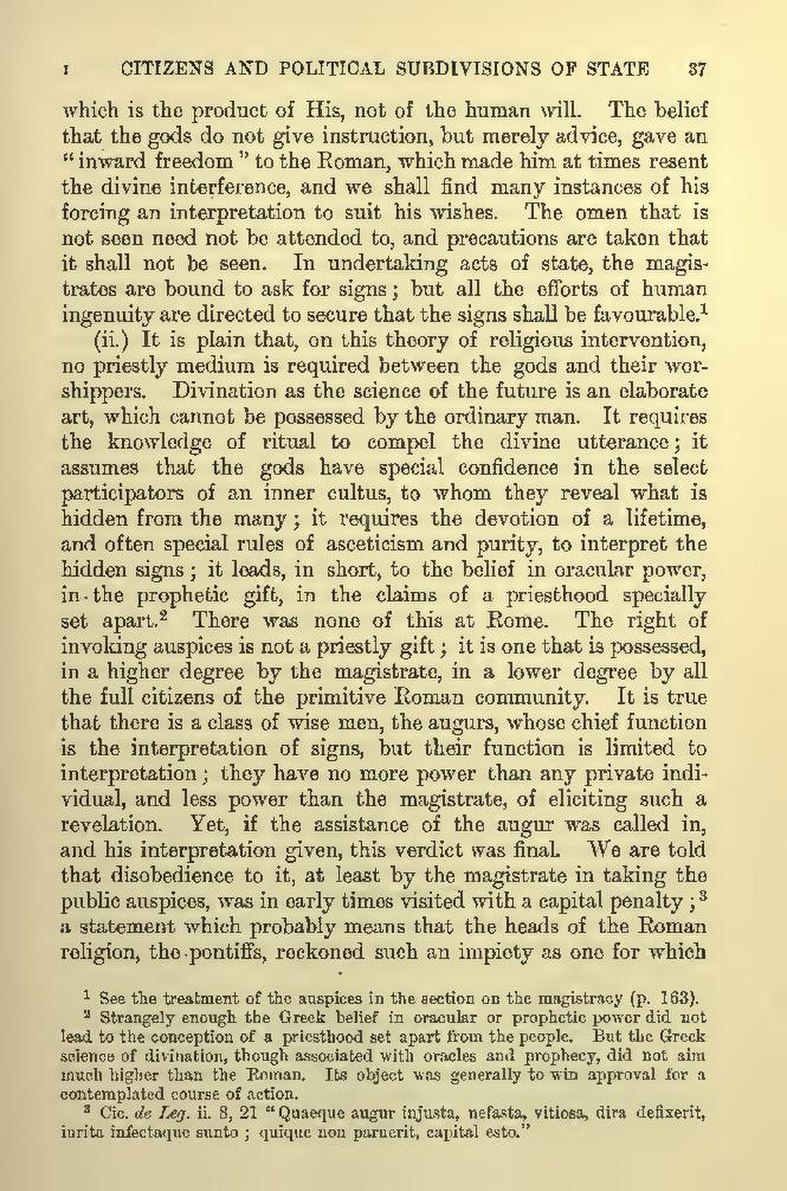which is the product of His, not of the human will. The belief that the gods do not give instruction, but merely advice, gave an "inward freedom" to the Roman, which made him at times resent the divine interference, and we shall find many instances of his forcing an interpretation to suit his wishes. The omen that is not seen need not be attended to, and precautions are taken that it shall not be seen. In undertaking acts of state, the magistrates are bound to ask for signs; but all the efforts of human ingenuity are directed to secure that the signs shall be favourable.[1]
(ii.) It is plain that, on this theory of religious intervention, no priestly medium is required between the gods and their worshippers. Divination as the science of the future is an elaborate art, which cannot be possessed by the ordinary man. It requires the knowledge of ritual to compel the divine utterance; it assumes that the gods have special confidence in the select participators of an inner cultus, to whom they reveal what is hidden from the many; it requires the devotion of a lifetime, and often special rules of asceticism and purity, to interpret the hidden signs; it leads, in short, to the belief in oracular power, in the prophetic gift, in the claims of a priesthood specially set apart.[2] There was none of this at Rome. The right of invoking auspices is not a priestly gift; it is one that is possessed, in a higher degree by the magistrate, in a lower degree by all the full citizens of the primitive Roman community. It is true that there is a class of wise men, the augurs, whose chief function is the interpretation of signs, but their function is limited to interpretation; they have no more power than any private individual, and less power than the magistrate, of eliciting such a revelation. Yet, if the assistance of the augur was called in, and his interpretation given, this verdict was final. We are told that disobedience to it, at least by the magistrate in taking the public auspices, was in early times visited with a capital penalty;[3] a statement which probably means that the heads of the Roman religion, the pontiffs, reckoned such an impiety as one for which
- ↑ See the treatment of the auspices in the section on the magistracy (p. 163).
- ↑ Strangely enough the Greek belief in oracular or prophetic power did not lead to the conception of a priesthood set apart from the people. But the Greek science of divination, though associated with oracles and prophecy, did not aim much higher than the Roman. Its object was generally to win approval for a contemplated course of action.
- ↑ Cic. de Leg. ii. 8, 21 "Quaeque augur injusta, nefasta, vitiosa, dira defixerit, inrita infectaque sunto; quique non paruerit, capital esto."
